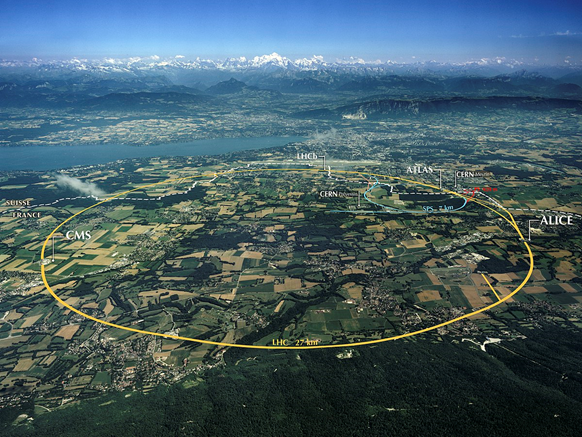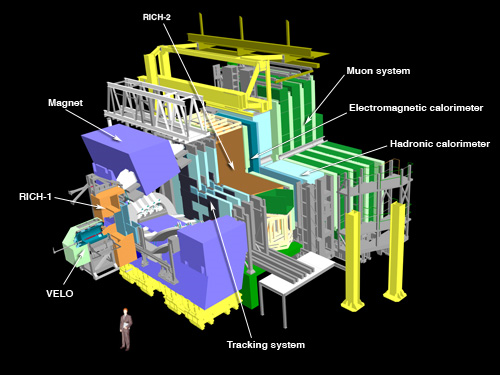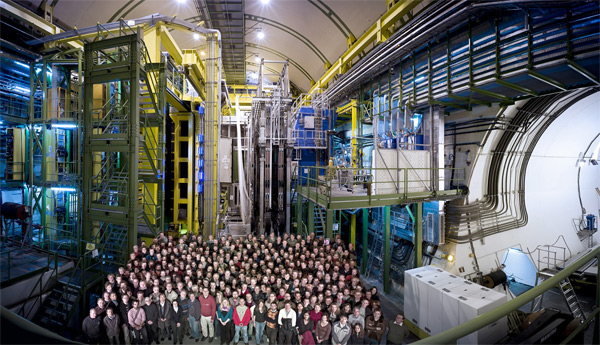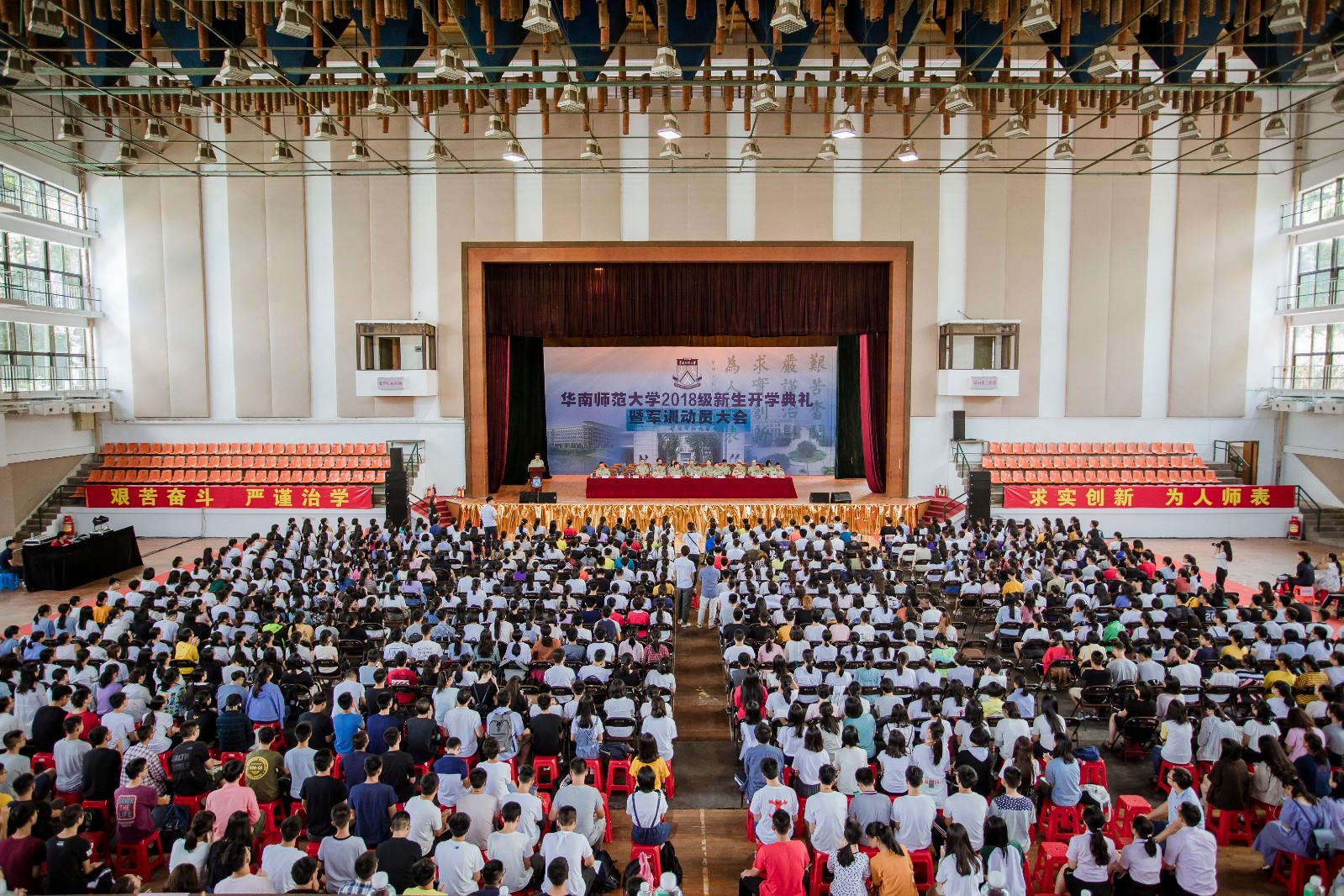
Likes
The 88th LHCb (Large Hadron Collider beauty) collaboration meeting was held at the European Organization for Nuclear Research (hereinafter referred to as "CERN") on June 11-15. At the board meeting of directors, South China Normal University (SCNU) won the full support of all international collaboration members and successfully joined the LHCb experiment group, becoming the sixth institution from China to be admitted following Tsinghua University, Huazhong Normal University, the University of the Chinese Academy of Sciences, Wuhan University, and the Institute of High Energy Physics of the Chinese Academy of Sciences. Li Hengne and two other teachers from SCNU will conduct physical research on weak measurements and shower internal structure measurements using data of proton-lead collisions and heavy-ion collisions, participate in upgrading and rebuilding the LHCb detector and make contributions to the building up of computing resources in China.

Aerial view of the LHC
It is known that CERN is based in a northwest suburb of Geneva on the Franco–Swiss border. The Large Hadron Collider (hereafter referred to as "LHC") is the world’s largest and most powerful particle accelerator operated by CERN. The LHC, contained in a circular tunnel, with a circumference of 27 kilometres, is at a depth of about 100 meters underground, crossing the border between Switzerland and France at four points. Currently the collaboration group is composed of about 800 scientists of 79 institutions from 18 countries.

Map of LHCb detector
SCNU has been making efforts to accelerate the development of Physics into a first-class discipline since Physics was included in the list of national first-class disciplines in September. Since then a large number of large-scale scientific research platforms have been launched. This successful admission into the LHCb collaboration group marks another milestone for bringing SCNU’s level of disciplines to a new height through international cooperation, which will lay a solid foundation for the building of this national first-class discipline and provide international support for experiments in this area.

Members of the LHCb cooperative group posed at the site of the probe
Source from President’s Office
Translated by Li Jianru
Proofread by Edwin Baak
What to read next:










